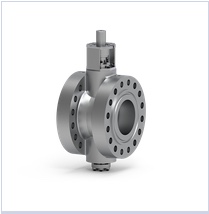The page you are looking for can not be found.
-
 Triple eccentric butterfly valve from OHL Gutermuth
Triple eccentric butterfly valve from OHL Gutermuth
-
 Custom Catalysts
Custom Catalysts
-
 Neles™ XH ball valves with forward-thinking design
Neles™ XH ball valves with forward-thinking design
-
 Magcat® Textured Catalyst
Magcat® Textured Catalyst
-
 FCC catalyst solutions
FCC catalyst solutions
-
 Podcasts from PAC
Podcasts from PAC
-
 Optimize heat exchanger efficiency
Optimize heat exchanger efficiency
-
 Gas Guide Issue Vol: 5
Gas Guide Issue Vol: 5
-
 FCC online diagnostic services for FCCU
FCC online diagnostic services for FCCU
-
 Sulzer structured packings
Sulzer structured packings
SPONSORS
- Atlas Copco Energas
- AFPM
- Aggreko
- AMETEK Level Measurement Solutions
- AMETEK Process Instruments
- Axens
- BASF Refinery Catalysts
- Berthold Technologies
- Cognite - AI for Industry
- Crystaphase Products
- Decarbonisationtechnology.com
- DigitalRefining.com
- Euro Petroleum Consultants
- Evonik Catalysts
- GEA Wiegand
- Grabner Instruments
- GTC Vorro Technology
- Honeywell UOP
- Integrated Global Services
- International Exhibition Services
- ITW Technologies
- Johnson Matthey
- Ketjen
- Merichem Technologies
- OHL Gutermuth Industrial Valves
- Precision Analyzer Company
- Process Consulting Services
- PTQ Magazine
- Sabin Metal Corporation
- Servomex Group
- Solenis LLC
- Sulzer Chemtech
- The World Refining Association
- Topsoe
- Tracerco
- Trindent Consulting
- UNICAT Catalyst Technologies
- Valmet
- Vereinigte Füllkörper-Fabriken
- W. R. Grace & Co
- Watlow
- XRG Technologies
- Zwick Armaturen
- Catalysts and Additives
- Consulting Services
- Corrosion and Fouling Control
- Events
- Fired Heaters, Furnaces and Boilers
- Gas Processing and Treatment
- Heat Transfer
- Industrial Cleaning
- Industry Information
- Instrumentation, Automation and Process Control
- Level and Flow Instrumentation
- Mass Transfer
- Measurement and Testing Devices
- Power Generation
- Precious Metals Recovery
- Process Engineering
- Process Instrumentation
- Process Licensing Technologies
- Pumps, Valves and Seals
- Rotating Equipment
- Thermal Technology
- Water and Wastewater Management







